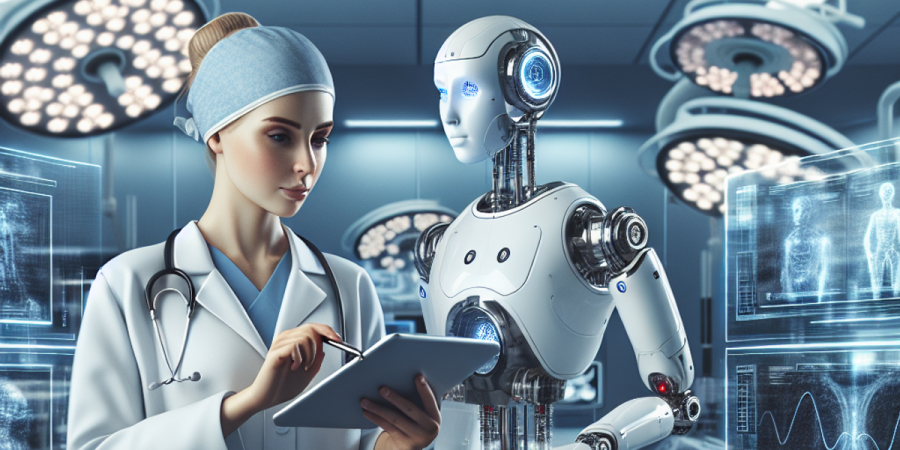

In recent years, artificial intelligence (AI) has emerged as a transformative force in healthcare, revolutionizing the way medical professionals diagnose, treat, and manage patient care. From streamlining administrative tasks to aiding in complex medical decision-making, AI-powered technologies are reshaping the landscape of healthcare delivery, promising improved outcomes, increased efficiency, and enhanced patient experiences.
One of the most significant contributions of AI to healthcare lies in its ability to analyze vast amounts of data quickly and accurately. With the proliferation of electronic health records (EHRs), medical imaging studies, and genomic data, healthcare organizations are inundated with information. AI algorithms can sift through this data to identify patterns, detect anomalies, and extract actionable insights that human clinicians might overlook. This capability is particularly valuable in early disease detection, where AI algorithms can analyze patient data to identify individuals at risk of developing conditions such as cancer, diabetes, or heart disease, enabling proactive intervention and personalized treatment plans.
Medical imaging is another area where AI is making a profound impact. By leveraging deep learning algorithms, AI systems can analyze radiological images such as X-rays, MRIs, and CT scans with unprecedented accuracy. These AI-powered diagnostic tools can assist radiologists in detecting abnormalities, quantifying disease progression, and guiding treatment decisions. Moreover, AI algorithms can help prioritize imaging studies based on urgency, optimizing workflow and reducing patient wait times.
In addition to diagnosis, AI is transforming the way healthcare providers deliver treatment and manage chronic conditions. Remote patient monitoring solutions equipped with AI analytics enable continuous monitoring of vital signs, medication adherence, and disease progression outside traditional healthcare settings. By collecting real-time data and alerting clinicians to deviations from baseline parameters, these systems empower healthcare teams to intervene proactively, preventing complications and hospital readmissions.
Furthermore, AI-driven predictive analytics are revolutionizing healthcare operations by forecasting patient demand, optimizing resource allocation, and improving workflow efficiency. Hospital administrators can leverage AI algorithms to anticipate patient admissions, allocate staff and equipment accordingly, and minimize wait times in emergency departments. Additionally, AI-powered chatbots and virtual assistants are enhancing patient engagement and access to care by providing round-the-clock support, answering questions, and scheduling appointments.
Despite its transformative potential, the widespread adoption of AI in healthcare is not without challenges. Concerns related to data privacy, security, and algorithmic bias must be addressed to ensure the responsible use of AI technologies. Furthermore, healthcare professionals must be adequately trained to understand and interpret AI-driven insights, integrating them into clinical practice effectively.
Nevertheless, the benefits of AI-powered healthcare are undeniable. By augmenting the capabilities of medical professionals, AI has the potential to improve patient outcomes, reduce healthcare costs, and enhance the overall quality of care. As AI technologies continue to evolve and mature, they will play an increasingly central role in shaping the future of healthcare, driving innovation, and transforming patient care for generations to come.
In conclusion, the rise of AI-powered healthcare represents a paradigm shift in the way healthcare is delivered and experienced. By harnessing the power of data and machine learning, AI technologies are enabling more accurate diagnoses, personalized treatments, and proactive interventions. As healthcare organizations embrace AI-driven innovations, they have the opportunity to revolutionize patient care, improve operational efficiency, and ultimately, save lives.
